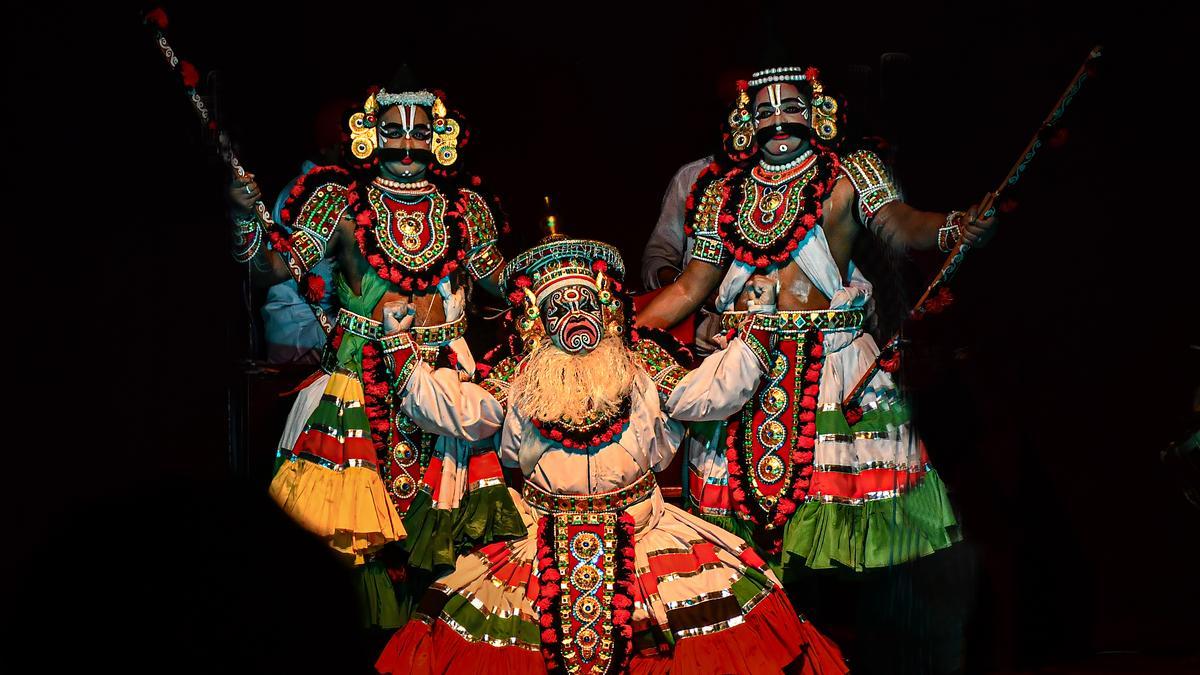
Expanding its repertoire of multi-disciplinary artistic expression, the New Delhi-based Kiran Nadar Museum of Art (KNMA) has ventured into the performing arts with the launch of its inaugural theatre festival. This festival is uniquely set against the enchanting backdrop of Sunder Nursery, nestled in the heart of India’s bustling capital. The event presents a curated collection of performances that emphasize contemporary theatre’s capacity to address pressing societal issues, including matters of class, religion, geography, gender, and sexuality.
“The aim is to make the arts accessible. The theatre festival is the next step in strengthening KNMA’s multidisciplinary programming, building on initiatives such as the Legacy Series, Centre Stage Festival, and KNMA in the Park,” said Kiran Nadar, the visionary behind the museum.
At the helm of this festival is Bengaluru-based actor, director, and filmmaker Kirtana Kumar, who serves as the festival’s curator. Kumar has designed the festival program to assemble plays that explore new material and stimulate discussions regarding the contemporary process of theatre-making. “The focus this time is contemporary theatre because I am interested in knowing what artistes in the subcontinent are saying in the contemporary metier — what theatrical forms and languages they are exploring and what issues excite them. How do they create, where is the money, what is their inspiration, what do they wish to express,” she elaborated.
The central theme of the festival – ‘The Power of Vulnerability’ – takes inspiration from Kirtana’s academic work on vulnerability in the context of post-colonialism and the rehearsal room. She viewed the festival as an opportunity to reframe vulnerability as a reservoir of beauty and creativity, showcasing voices and performances that do not always receive mainstream attention.
The festival’s opening act, Beesu Kamsale, is an acrobatic folk form traditionally associated with the men of the Halu Kuruba community from the regions near Mysuru in Karnataka. This vibrant performance sets the stage for an array of productions, including The Nights, presented by the Katkatha Puppet Arts Trust, a tribute to the rich narratives of the Arabian Nights from Syrian, Chinese, and Indian perspectives. Another offering from this group is Enchanted Walk, an immersive puppet experience that invites the audience into a magical realm teeming with whimsical insects.
Additional performances include Vali Vadha, adapted from the Aranyakanda of the epic Ramayana, which recounts the tale of the vanara brothers, Vali and Sugreeva. Love and Information by Mohit Takalkar presents a frenetic mosaic mirroring the pace of modern digital interactions, while Portal Waiting by Abhi Tambe blurs lines between storytelling and rock music in an innovative aural-theatre experience.
.
Artistic exploration continues with Wepushthesky, a solo performance by Nisha Abdulla. This creation intertwines song, story, myth, and history, exploring themes of friendship. Savita Rani’s depiction, Notion(s): In Between You & Me, delves into the intersections of personal and societal narratives concerning religion, caste, and identity.
Project Darling by Bengaluru’s Dramanon theatre group contrasts documentary realism with theatrical elements like clown, song, and dance to examine female sexuality under cultural censorship pressures. Talki, another highlight, features transwomen over 55 who share personal stories touching on love, survival, and resilience. The festival also includes visceral performances like Before Your Eyes, a powerful collective creation addressing historical and contemporary injustices related to caste and gender.
As the festival progresses, performances such as Bhaagi Hui Ladkiyan by Aagaaz Repertory bring to life everyday tales from Delhi’s Nizamuddin Basti. Be-Loved offers a poignant exploration of queer love through a symphony of theatre, music, poetry, and movement. The festival thus fosters an environment for past, present, and emerging voices in contemporary theatre.
In planning this eclectic lineup, Kirtana Kumar also prioritized future prospects. She emphasized developing a sustainable framework for the festival that can be adapted by different curators and themes, ensuring community engagement and enriching the dialogue between audiences and artists. “The essence of contemporaneity lies in democratic practice that include creative ideas such as co-authorship and the value of lived experience,” she noted.
Complementing the performances, the festival includes a range of workshops, a lecture demonstration, and a symposium. These events aim to foster engaging discussions among performance theorists, scholars, students, and practitioners, and even include a session on transcultural curation.
The KNMA Theatre Festival is scheduled to be held at Sunder Nursery in New Delhi from October 14 to 20, offering a vibrant testament to the power and potential of contemporary theatre in our era.












